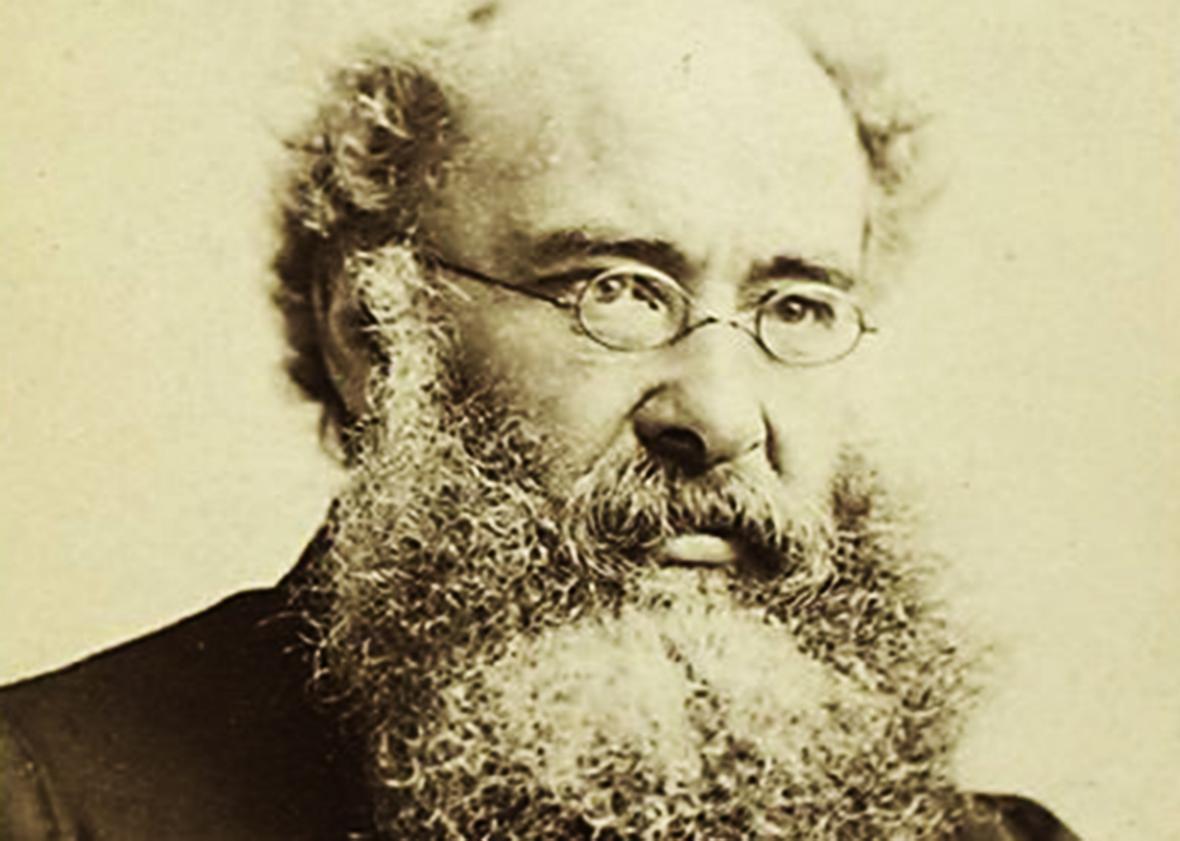This article is part of a Year of Great Books, a Slate Academy. To learn more, read Laura Miller’s introduction to the series, or visit Slate.com/GreatBooks.
A version of this article originally appeared in Audible Range, Audible’s online magazine. If you haven’t claimed your complimentary Audible audiobook of Barchester Towers, click here.
The title of the first chapter of Barchester Towers is not exactly a hook, at least for the contemporary reader: “Who will be the new Bishop?”
The novel that follows is similarly archaic, suffused with lingo (prebendary, curate, warden, etc.) unique to the particularities of the Church of England in the mid-19th century. After all, Barchester, the seat of the (fictional) diocese of Barset, is a cathedral town, and as our narrator observes, “the manhood of Barchester consisted mainly of parsons.”
By the 19th century, when Barchester Towers was written, the cathedral’s centrality to the medieval town and ethos had withered away. Cathedrals had become “bastions of entrenched conservatism,” in the words of historian Nigel Yates, and accusations of material gluttony and spiritual impoverishment were rife. Under prime minister Sir Robert Peel, a movement to reform the church from the top down began.
There was another movement for reform in the Church of England at the time, however. The Oxford Movement, named after the university it emanated from, meant to reform the church from within. These so-called Tractarians—after the epistles Tracts for the Times, chiefly written by John Henry Newman—“sought always to convey the spirit behind the literal word,” as Elisabeth Jay puts it. Such a notion was anathema to the established power base of the Church of England.
These are the battle lines Trollope mocks when he writes that “there was hardly room for Proudieism in Barchester as long as Grantlyism was predominant.” As Jill Durey writes in Trollope and the Church of England, Mr. Harding would have been considered a member of the traditional “high and dry” clergy, who would have been “synonymous with indolence and fondness for the comforts of life.” The Proudies and Mr. Slope are the reformists attempting to clean up what they see as waste and excess.
Trollope refuses to throw in his lot with either side. Mr. Slope and Mrs. Proudie are presented as grasping and above their own stations, but to a contemporary reader their motivations seem less than entirely noxious (especially Mrs. Proudie’s), and there is nothing in their evangelical beliefs that Trollope inveighs against. The author would later write, “Had we not High Church and Low Church among our ordinary bishops … we should miss much that we feel to be ornamental to the Establishment and useful to ourselves.”
Trollope wrote as a trade, rather than to express political or religious views—and he wrote a lot. His oeuvre of 47 novels contains within two loosely intersecting series, the Chronicles of Barsetshire and the Palliser novels. While the six novels comprising the Chronicles concern the doings of the clergy in the titular diocese, and the six that comprise Palliser take place amid parliamentary struggles in London, they inhabit the same fictional Britain.
Adam Gopnik writes, “Nothing in the little world of Barchester’s clerics really counts for much; everything in it is high drama.” I disagree with Gopnik in that Barset hardly seems minor: Careers and marriages are made and demolished; the prime minister, the press, Tom Towers of the Jupiter (supposedly a stand-in for the London Times), and the University of Oxford take an interest. But Gopnik’s central point stands: In Trollope, ideology is secondary, and personality reigns.
And there are plenty of personalities in Trollope. When the author uses the phrase “our friend” to refer to one of his characters, it comes off as less of a convention and more of an affectionate title. He seems to enjoy the company of even Mrs. Proudie and Mr. Slope, his supposed heavies. In his Autobiography, Trollope wrote of his characters, “There is a gallery of them, and of all in that gallery I may say that I know the tone of voice, and the colour of the hair, every flame of the eye, and the clothes they wear. Of each man I could assert whether he would have said these or the other words; of every woman, whether she would then have smiled or so have frowned.”
This is why Trollope’s novels have aged well: They are about personalities in conflict. Early in Phineas Finn, a novel very obviously about politics, the authorial voice disposes of political talk as “nonsense.” As the novel progresses, the ideological lines his characters toe are often unclear, but their motivations for doing battle against one another are perfectly delineated. In the middle novel of the Chronicles of Barsetshire, Framley Parsonage, Trollope wrote, “I have endeavored to portray [clergymen] as they bear on our social life rather than to describe the mode and working of their professional careers.” Were he to have done otherwise, “I should have either have laden my fiction with sermons or I should have degraded my sermons into fiction.” (For an example of that degradation, see John Henry Newman’s largely forgotten 1848 novel Loss and Gain, which features theological discussion conducted in minutiae by characters who are merely mouthpieces.)
Barchester Towers shifts from a light satire of church politics to a high comedy of marital proposals. The question “Who will be the new Bishop?” becomes “Who will be Mrs. Bold’s new husband?” (Although Trollope tells us early on who it will not be, thus allowing only one real answer.) The high church/low church battle is never truly resolved, despite Slope’s exit. The bishop himself will remain, “till the new-fangled manners of the age have discovered him to be superannuated, and bestowed upon him a pension.” Yet Dr. Grantly is pleased enough to have his sphere of influence unchecked, with a minimum of meddling from Mrs. Proudie (at least until The Last Chronicle of Barset). There is, after the dust clears, room for both Proudieism and Grantlyism in Barchester.
